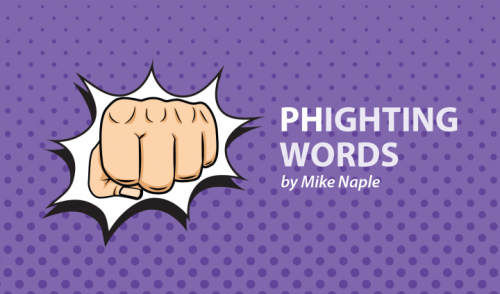Instead of Climbing the Ladder, I’m Searching for a New Path With PH
Written by |

PHighting Words Mike Naple
We’re taught to climb ladders.
When I played Chutes and Ladders as a kid, I always wanted to land on a ladder because it meant advancement — one step closer to the finish line. Students move up rung by rung from preschool to high school before moving on to college, where recent graduates will inevitably crane their necks at the professional ladder still to climb.
I function very well within a structured environment, and I understand how to move from one rung on the ladder to the next, always looking ahead. I climbed as many ladders as possible at a young age, constantly searching for new opportunities to help me pursue a successful career.
But what happens when a rare disease disturbs your comfortable linear progression? That’s the question I’m still trying to answer five years after receiving a pulmonary hypertension (PH) diagnosis.
PH is a rare disease that affects the heart and lungs. According to the Mayo Clinic, people with PH can experience shortness of breath, fatigue, elevated heart rate, and chest pain, among other symptoms.
After starting a new job in 2015, I noticed the onset of intense episodes of shortness of breath that made it difficult to walk the few blocks from the metro stop to my job working on Capitol Hill in Washington, D.C. Another job, another reach for the next rung on the ladder. Yet, I couldn’t help but think that my respiratory problems were about to knock over the ladder, with me underneath it.
While recovering from a hospitalization in 2016 to adjust to my PH diagnosis, I mostly unplugged from my job. It felt strange to focus only on my health, as if it were my job, and I was desperate to fill the space. A chronic illness like PH brings so many unknowns, and because of fear, anger, and avoidance, I gravitated toward what I knew, and that meant my job. For better or worse, I pulled myself out from under that ladder and began my ascent once more.
I began a new job just four months after my PH diagnosis. You might think I’ve made all the wrong choices at this point, putting a job ahead of fully focusing on my health and making a full recovery. You might be right. At the same time, I was scared and didn’t know how many years I had left before PH progressed too far, possibly toward fatal heart failure. With thoughts of my mortality dancing through my head, I figured I better use the time I had available to achieve a few more professional goals and climb a few more rungs up the ladder.
A switch in presidential administrations required me to change jobs a second time, and I have been with my current employer for almost four years. I have good days and bad days. I am grateful to work for an organization where I can be open about my disability and rare disease without any fear of negative repercussions.
When I was newly diagnosed, I heard a lot about patients adjusting to a new normal, a lifestyle more suitable for somebody living with a severe pulmonary disease. This notion terrified me. I immediately equated a new normal to slowing down and doing less — two concepts I perceived strictly in a professional context, rather than registering the possibility of any improved health outcomes. My mind refused to comprehend anything beyond that pesky ladder with rungs still left to climb.
I am certainly not the first person to reevaluate where they are in life because of a rare disease, nor am I the only person who’s thought they might never work again. I also know that I won’t be the last, as work connects many Americans to a sense of self-worth and self-esteem.
A year and a half ago, my pulmonary specialist suggested I find a less stressful job. I explained my fears of a slower-paced job and questioned what that job would actually look like for me. The practical side of me also factored in necessities like health insurance to cover the high cost of the prescription drugs required to manage PH, in addition to the cost of my checkups, echocardiograms, exams, and other healthcare services.
I can’t help but chuckle at the irony of my struggle to climb metaphorical ladders when I can become short of breath climbing a few flights of stairs. I feel grateful that I’m healthy enough to work and I remain fearful that the day will come when I’m no longer able. In the meantime, I’m challenging myself to set aside the ladder in favor of finding a path that works for me.
Follow Mike Naple on Twitter: @mnaple.
***
Note: Pulmonary Hypertension News is strictly a news and information website about the disease. It does not provide medical advice, diagnosis, or treatment. This content is not intended to be a substitute for professional medical advice, diagnosis, or treatment. Always seek the advice of your physician or other qualified health provider with any questions you may have regarding a medical condition. Never disregard professional medical advice or delay in seeking it because of something you have read on this website. The opinions expressed in this column are not those of Pulmonary Hypertension News or its parent company, Bionews, and are intended to spark discussion about issues pertaining to pulmonary hypertension.




Leave a comment
Fill in the required fields to post. Your email address will not be published.